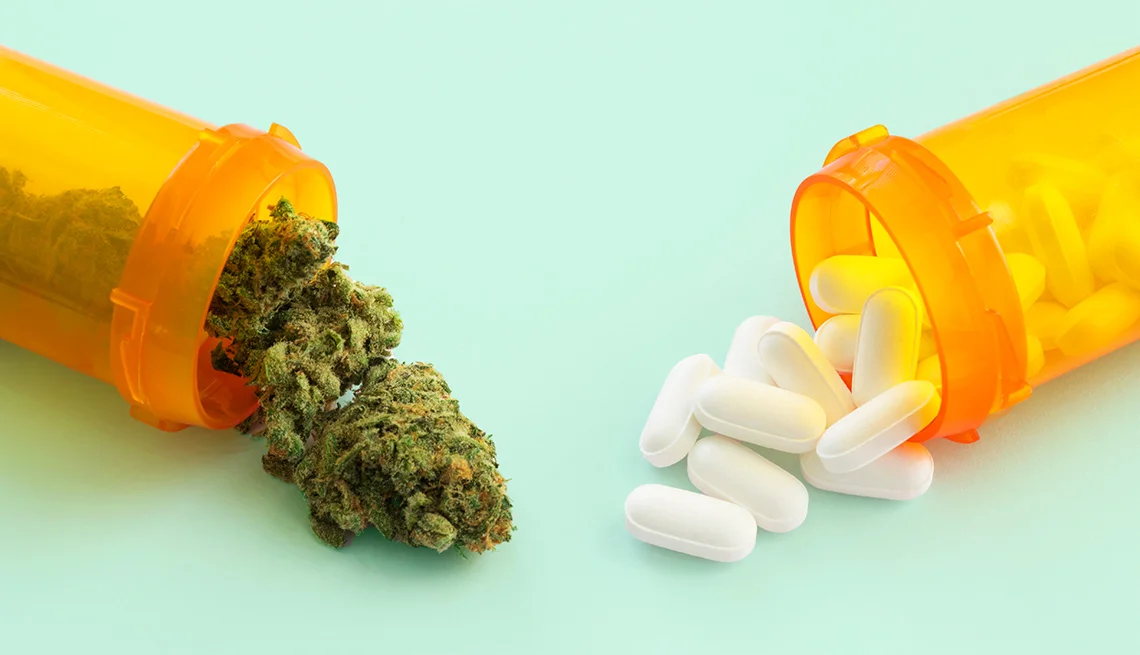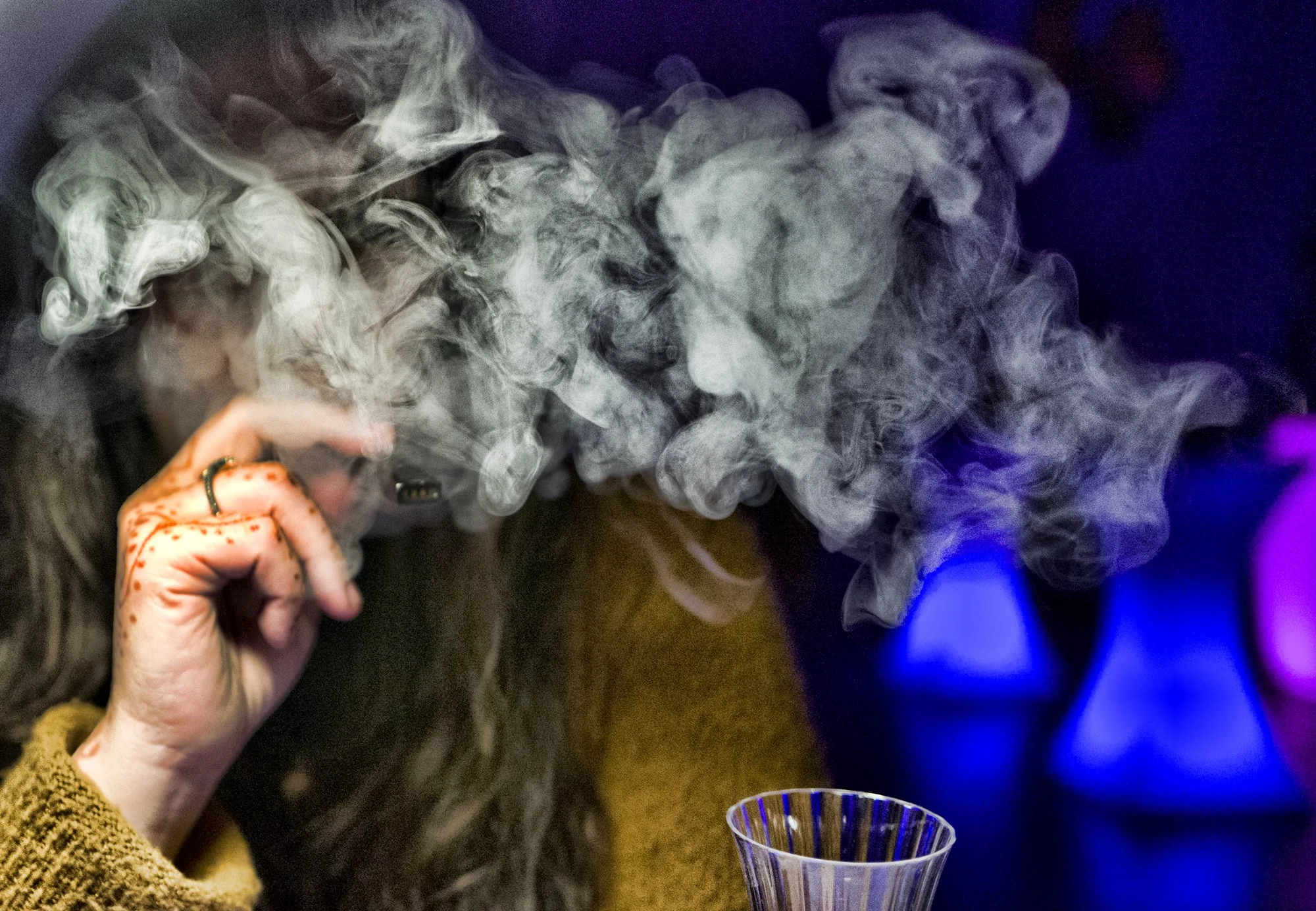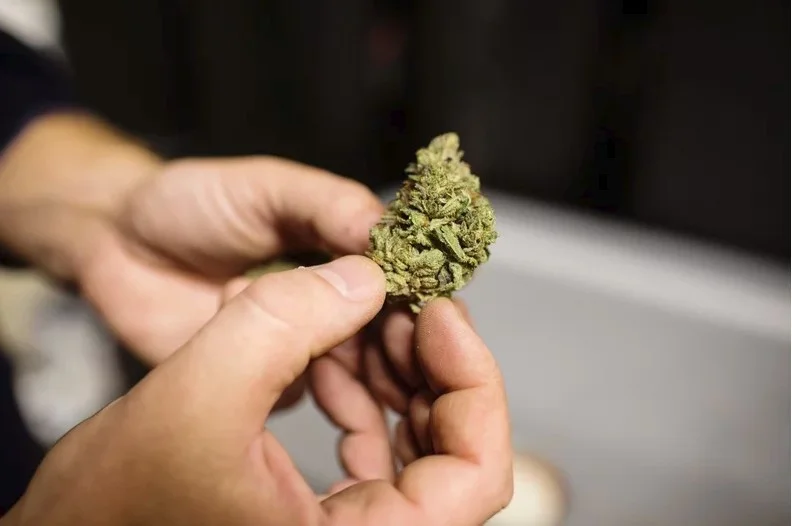What I learned is that just because prohibition failed, it does not mean legalization is succeeding. Few of the most significant benefits legalization advocates promised were materializing. The thirst for profit and the interests of powerful corporations were swiftly sidelining small-scale producers and retailers, even as we filmed. The need to provide justice to the victims of the war on drugs has been lost in the “green rush.” It was the same old story: powerful corporate interests coopt a nominally progressive social movement and warp it to their own benefit.
Read MoreStay in the know with the latest on our fight against the legalization of marijuana
Have an article that you would like us to post? Share it on our Facebook page!
Deaths and Lung Disease Linked to THC E-Cigs→
/Vaping THC may be behind many of the serious lung diseases that have been tied to e-cigarette use––raising concerns about an increasingly popular way of consuming marijuana, which many consumers view as a relatively safe habit.
Read MoreExpanding legal access to marijuana is not the solution to America's opioid crisis
/Expanding legal access to marijuana is not the solution to America's opioid crisis, according to a new research analysis published by the nonprofit Hazelden Betty Ford Foundation.
Read MoreTeens who use concentrated marijuana more likely to use other drugs→
/The highly concentrated form of the drug can be vaped and doesn't smell like traditional pot.
Read MoreLegalizing pot is proving to be a public-health disaster→
/It’s becoming increasingly obvious that legalizing marijuana consumption was a colossal public-health blunder.
Read MoreYoung Marijuana Users Face Psychosis Risk→
/A large study of teens shows that "in adolescents, cannabis use is harmful" with respect to psychosis risk, says study author Patricia J. Conrod, PhD, a professor of psychiatry at the University of Montreal.
Read MoreLuke Niforatos: The pot industry's got lots of tricks -- Sens. McConnell, Shelby, please don't fall for them→
/Across the country, lobbyists for the marijuana industry, backed by Big Tobacco, Big Alcohol, and pharma investors, have focused much of their attention on getting members of Congress to back today’s highly potent legal weed under the guise of social justice to create a new addiction-for-profit industry.
Read MoreCannabis: Misinformation about CBD can be life-threatening→
/Hyperbole can be rampant in health news, particularly with respect to cannabis. One recent headline declared: "CBD is effective in treating heroin addiction." Another proclaimed: "New study finds CBD could curb heroin addiction."
These stories were referring to a recent study in the American Journal of Psychiatry that found a short-term course of cannabidiol (CBD) reduced cue-induced cravings and anxiety in drug-abstinent individuals who were recovering from opioid use disorder, specifically heroin addiction.
This study is undoubtedly exciting and a welcome contribution to the scientific literature demonstrating the potentially helpful role of cannabinoids in the treatment of opioid use disorder.
That said, there is a mismatch between these headlines and the accurate interpretation of the findings from the study. And this mismatch is not trivial.
Medicinal uses of cannabidiol
CBD is one of many phytocannabinoid compounds found in the plant cannabis sativa. It is quickly gaining traction as a legitimate medicine in the medical community. For example, it has been associated with benefits in treating some neurological disorders and has recently been FDA-approved for the treatment of seizures in people with Lennox-Gastaut syndrome, a severe form of epilepsy.
Further, unlike its sister cannabinoid, delta-9-tetrahydrocannabinol (THC), CBD is largely non-intoxicating and therefore is thought to be non-addictive. It also appears to be relatively safe to use. It's no wonder CBD has garnered so much excitement and positive attention.
That said, scientific enterprise is a slow-moving and cautiously critical machine, and we still have much to learn about the medicinal uses of CBD. In fact, there remains a substantial gap between the hype surrounding CBD and the actual evidence guiding its medicinal use.
Participants already abstinent
In the study published in the American Journal of Psychiatry, the researchers recruited 42 people recovering from opioid use disorder (specifically heroin) and randomly allocated them to either a treatment group (to receive 400 or 800 milligrams of CBD once a day) or a control group (to receive a placebo once a day).
An important aspect of the study is that participants were already abstinent, not actively using heroin, and not experiencing heroin withdrawal. In other words, the participants were in recovery and CBD was not used to treat their withdrawal or maintain tolerance. It was instead used to help treat cravings for heroin and anxiety that were experimentally induced (for example, by showing participants videos and objects related to heroin use) that could lead to relapse.
The researchers concluded: "CBD's potential to reduce cue-induced craving and anxiety provides a strong basis for further investigation of this phytocannabinoid as a treatment option for opioid use disorder."
It is worth reiterating and highlighting that the study compared CBD to a placebo group, and did not compare to other opioid agonist treatments, such as therapy with methadone (Methadose) or buprenorphine (Suboxone).
Additionally, and importantly, the participants were abstinent and not in active withdrawal.
Opioid agonist treatments are particularly helpful for the mitigation of opioid cravings and withdrawal. Another therapeutic effect of opioid agonist treatments is that they help people in recovery maintain some level of tolerance to opioids, which is helpful for preventing overdose in the event of relapse.
One particular opioid agonist medication, buprenorphine, even blocks stronger opioids like heroin from working as effectively. CBD, on the other hand, does not provide these important protective effects.
Further, to suggest that CBD is an effective treatment for opioid use disorder is misleading and harmful, as this misinformation could be used to justify not initiating, or discontinuing, opioid agonist medications.
Language matters
The findings from the opioid study are certainly important. Investigations into novel therapies that can help people manage cravings to use drugs such as opioids is a major advancement. If future studies can replicate these findings, especially among people who are experiencing difficulties with management of cravings, then this would lend stronger support to the idea that CBD could be used as an adjunctive treatment to opioid agonist therapies among people who are experiencing opioid use disorder.
Crucially, this means that we need many more studies and funded research to fully understand exactly how CBD might play a role in the treatment of opioid use disorder.
Despite what some headlines might have implied, this study does not indicate that CBD should replace first-line, evidence-based opioid agonist therapies such as methadone and buprenorphine.
These conceptual distinctions are not trivial because they may yield devastating consequences. When it comes to articulating the implications of scientific results that involve medical treatments, language matters. And so do headlines.
Cannabis use during pregnancy doubles risk of premature birth, study says→
/Twelve per cent of babies whose mothers used drugs were born before 37 weeks, compared to 6 per cent who did not, study finds
Read MoreMarijuana or Hemp: FDA Says Beware Of CBD For These Reasons
/Research Shows CBD Can Cause Liver Damage
Read MoreNew Evidence on Pot During Pregnancy→
/The authors did find some increased risk of poor birth outcomes among the cannabis users: most notably an increased risk of premature birth, an increased risk of the infant being small for his or her gestational age, and an increased risk of transfer to the NICU. These risks were large if not staggering.
Read More5 reasons marijuana is not medicine→
/The “marijuana mess” and its “new realities” were created not by the federal government but by political processes designed to circumvent the FDA, the only federal agency that safeguards our nation’s medicines. If the more than $100 million spent on ballot and legislative initiatives instead had been used for quality clinical trials, our nation would know much more about the therapeutic potential of cannabinoids. Instead, “dispensary marijuana” is evolving into a human experiment without informed consent.
Read MoreFailure to legalize weed is blessing in disguise for New York→
/The real social injustice of legalizing weed arises from how the explosive growth of the cannabis industry enables it to escape government regulation in states with legal weed, while rectifying the harms of the War on Drugs is relegated to the back burner.
Read MoreMarijuana Research Through The Years
/A collection of Marijuana Research Through The Years
Read MoreLiving near marijuana dispensaries makes youth more likely to use it, study finds→
/Young adults who live in neighborhoods with a higher number of medical marijuana dispensaries use pot more frequently than their peers and have more positive views about the drug, according to a study released by the Rand Corp.
Read MoreThis Reporter Took a Deep Look Into the Science of Smoking Pot. What He Found Is Scary.→
/We look back and laugh at Reefer Madness, which was pretty over-the-top, after all, but Berenson found himself immersed in some pretty sobering evidence: Cannabis has been associated with legitimate reports of psychotic behavior and violence dating at least to the 19th century, when a Punjabi lawyer in India noted that 20 to 30 percent of patients in mental hospitals were committed for cannabis-related insanity.
Read MoreA cautionary tale about medical marijuana and opioid deaths→
/“A lot of people interpreted the first study as causal because it’s congenial to their goals,” said Chelsea L. Shover, a postdoctoral fellow in psychiatry who was part of the Stanford research team. “It did not say that one is causing the other.”
Read MoreExploding danger: U.S. marijuana oil labs pose deadly, destructive hazard→
/The Sunny Meadow Street explosion illustrates a growing danger as marijuana moves from the counterculture to the mainstream, law enforcement officials told Reuters. With cannabis now legal for medical or recreational use in 33 states and the District of Columbia, users are discovering new ways of consuming the drug.
Read MoreLegalizing medical cannabis reduces opioid overdose deaths? Not so fast, study says→
/A study published in PNAS contradicts a widely cited paper, raising new questions about whether and how medical marijuana can affect the opioid crisis.
Read MoreDR. ROBERT L. DUPONT'S WRITTEN TESTIMONY TO THE FDA REGARDING THE HEALTH IMPACTS OF CBD→
/Today’s CBD industry is sidestepping the great advances made over the past 113 years to subject health claims to careful investigation, providing accurate information to the public and ensuring the safety, efficacy and purity of health-related products. It is well known that CBD is going into myriad products because of the widespread and growing – the unprecedented – mystique associated with the substance. In the absence of meaningful regulation, CBD will pose a major threat to public health and safety. We appear to be at that dangerous point already.
Read More



















